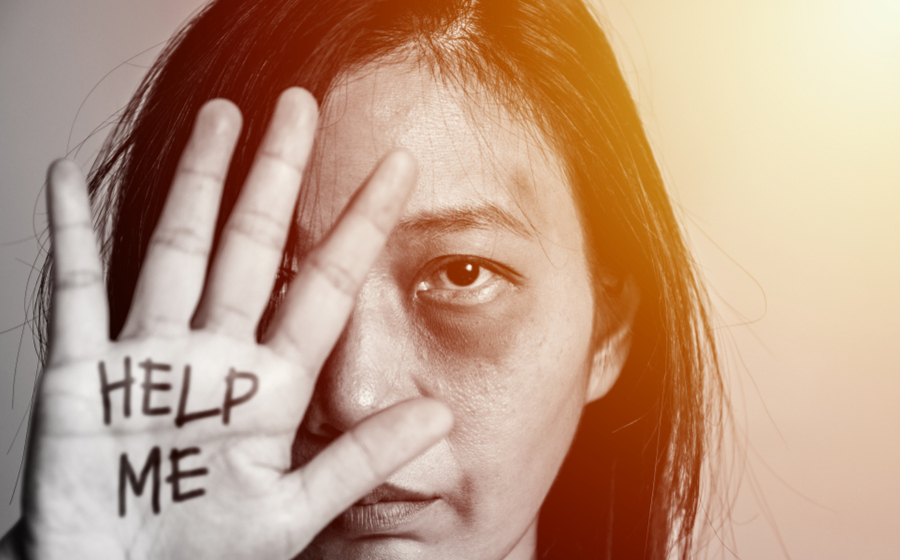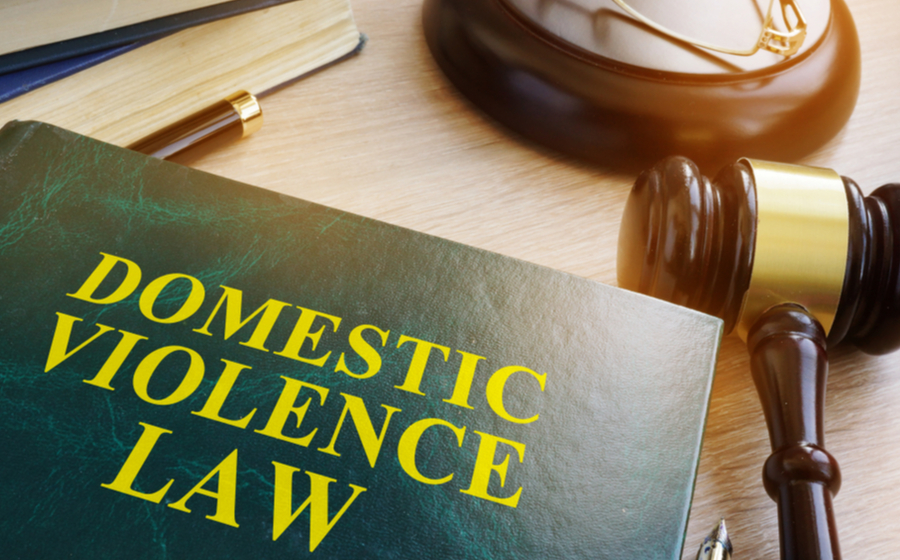Are You A Victim Of Domestic Violence? If you are the victim of domestic violence, or if you have reasonable cause to believe you are in imminent danger of becoming the victim of any act of domestic violence, you have the right to request that an Injunction For Protection Against Domestic Violence be issued. The Clerk of the Court is required to assist you in seeking both injunctions for protection against domestic violence and enforcement for a violation of an injunction.
If you have been a victim of domestic violence, repeat, dating or sexual violence, you can file for a restraining order at the Broward County Courthouse, 201 Southeast 6th Street, Room 248, Fort Lauderdale, Florida 33301. Office hours are Monday through Friday, 8:30 a.m. to 5:00 p.m. The Broward County Clerk of Court’s Family Intake Unit will help you in filing out of the proper forms.
Emergency restraining orders under the Domestic Violence Statute are available after 5:00 p.m. or on weekends and holidays.
Domestic Violence includes such acts as:
- Physical Abuse
Pushing, slapping, kicking, punching, choking, and beating. - Emotional/Verbal Abuse
Threats, verbal intimidation, following and stalking, or acting out in anger. - Sexual Abuse
Any unwanted touching or forcing of someone to engage in a sexual act against his/her will.

Are You The Accused?
An injunction for protection against domestic violence in Florida can have serious penalties...

Are You The Victim?
If you have been a victim of domestic violence, repeat, dating or sexual violence...

Restraining Order
When a petition for protection against domestic violence is filed with the court it...
What You Should Do if You Are a Victim of Domestic Violence
If you have been a victim of domestic violence, repeat, dating or sexual violence, you can file for a restraining order at the Broward County Courthouse, 201 Southeast 6th Street, Room 248, Fort Lauderdale, Florida 33301. Office hours are Monday through Friday, 8:30 a.m. to 5:00 p.m. The Broward County Clerk of Court’s Family Intake Unit will help you in filing out of the proper forms.
Emergency restraining orders under the Domestic Violence Statute are available after 5:00 p.m. or on weekends and holidays.
You will need to write down the most recent violence that occurred, when it occurred, and be very specific about the violence and/or staking. Instead of saying someone was violent say exactly what the person actually did to you, for example: hit, kicked, slapped, etc. Instead of saying someone threatened you, write down their exact words. Be prepared to write specific examples of past violence and when it happened.
When your paperwork is completed, it will be reviewed by a judge. The judge may defer, deny or grant your petition. If your petition for the restraining order is deferred, a hearing will be set within 15 days, without a temporary injunction being issued. The court will consider whether an injunction should be entered at the hearing.
If your petition for the restraining order is denied, the evidence presented in the petition was insufficient to allow the Court to issue an Injunction for Protection.
If your restraining order was granted, your temporary order is in effect for only fifteen (15) days. To have it extended for a longer period of time, you must attend a court hearing in approximately fifteen (15) days. The hearing time, date and courtroom number can be found on the first page of the restraining order. If you do not attend his hearing, or if you arrive late to the hearing, your restraining order will probably be dismissed. If you other party has not been served, you should still attend the hearing so that the judge can extend the temporary restraining order.
What Is A Restraining Order?
The court can enter a temporary restraining order based on one person’s sworn petition alone, but it is only in effect for a short time. Both people have the chance to address the court during the hearing before a final order can be entered.
You will have a chance to talk to the judge at the hearing. Attend your hearing. The judge can enter a final injunction without you present at the hearing if you were served and notified of the hearing.
The purpose of the hearing is for the judge to decide whether or not to issue a final injunction. If you have a pending criminal case about the same or related incident, you have the right not to testify in the civil injunction hearing because anything you can say can be used against you in the criminal case.
Please read the court order very carefully because it tells you what you can and cannot do before your hearing.
Do not contact the other person in this case either in person, or by phone, emails, text messages, letters, sending gifts, talking in public places, sending messages or having others talk to the other person for you. You may not have contact even if the other person contacts you first.
Do not go to any place prohibited in the temporary injunction (other person’s home, place of work, or other places listed in the order signed by the judge) or within 100 feet of the other person’s car. You may not have contact even if you are invited.
Only the judge can change the order. The other person cannot decide to change or dismiss the order alone. If the order person contact you, it is not a crime, but if you have contact with the other person, you can be arrested and charged with a crime (up to one year in jail).
HAVE YOU BEEN ACCUSED OF DOMESTIC VIOLENCE?
Don’t Take the Domestic Violence Lightly. We Don’t! An injunction for protection against domestic violence in Florida can have serious penalties and consequences for your life and family. If you did the deed, you need a someone at your side who has knowledge of how the system works.
An experienced attorney can advise and guide you toward actions that will reduce the chances of a restraining order and minimize the personal and legal consequences for you. Under the provisions of Florida Statute 741.28, domestic violence means any assault, aggravated assault, battery, aggravated battery, sexual assault, sexual battery, stalking, aggravated stalking, kidnapping, false imprisonment, or any criminal offense resulting in physical injury or death.
Consequences if a final injunction for protection is entered against you:
- (a) Your ability to purchase and possess weapons and ammunition is affected.
- (b) The final injunction is enforceable in 50 states.
- (c) The final injunction may require you to leave a shared residence, restrict and limit visitation with minor children, and/or required you to pay support for minor children and/or the petitioner.
- (d) If you violate a final injunction, you may be arrested and charged with a first degree misdemeanor for each violation with a maximum sentence of one year in jail under Florida Law.
- (e) If you stalk the petitioner, a person with an injunction against you, you may be charged with a second degree felony.
- (f) You may be deported or your application for citizenship may be affected.
- (g) Your employment applications or status may be affected, especially in certain fields if you are required to use weapons for work.
- (h) Your professional licenses may be affected.
- (i) Your admission into military, schools, colleges, or universities may be affected.
